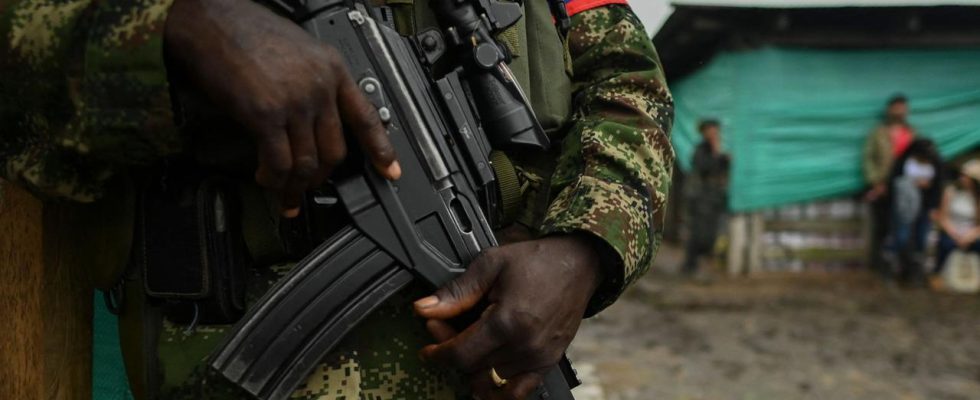Foreign Minister Baerbock is visiting Colombia today. The war is officially over there. But the peace process was only a brief moment of silence, many say. Now it is worse than before.
“Guardia”, group of guards, calls Rosa Pardo. She is a leader of the indigenous self-defense group. “We are strong as Guardia,” say around two dozen children and young people who are standing on a large, covered school sports field.
Pardo and the children are in the small, indigenous settlement of Toez in the Norte del Cauca. Still one of the most conflict-ridden regions in Colombia today, more than six years after signing the peace treaty with the FARC guerrillas.
“It’s War Again”
“Yes, there was a peace process,” explains the indigenous leader. “But there was only a brief moment of silence,” the state had not kept its promises. “Now new groups have formed, war is raging again and it’s worse than before.” And the biggest sufferers are the children.
That’s why Rosa Pardo tries to prepare the children of the community for the dangers. For example, the timetable would say: How do I protect myself from forced recruitment? Pardo also worries about her own son, his name is Oscar.
The 11-year-old explains that there are often older children who don’t even know her and who try to recruit her. “They pretend to be our friends, often they are already connected to the guerrilla or other groups, they then say how cool it is there and that you will get money, motorbikes or cars.” But the reality is very different, explains Oscar.
violation of international law
According to official figures from the Colombian ombudsman, in the first three months of 2023 alone, 23 children in Colombia were forcibly recruited by criminal groups. In May, four indigenous children were executed in the Amazon after trying to escape from a guerrilla group, Ombudsman Carlos Camargo said.
“The heinous crime is a clear violation of international law, and these groups trample on the efforts of the government and all Colombians for peace,” says Camargo.
Social inequality, racism, unfair land distribution
“Paz Total”, perfect peace, is the name of the project of Colombia’s president, who will only be elected in 2022. Gustavo Petro, the first leftist leader and a former guerrilla himself, pledged to fight the root causes of the violence: social inequality, racism, unfair land distribution and environmental degradation.
At the same time, he wanted to negotiate with all the remaining armed groups in the country. And there are many: FARC fighters who had split off, the second largest guerrilla ELN, paramilitaries, drug cartels. But in response to the children’s murders, the government lifted a previous ceasefire in four particularly conflict-ridden provinces.
“Government cannot offer much and exert little pressure”
According to Elizabeth Dickinson, an analyst at the International Crisis Group, the biggest problem is that “government has neither the carrot nor the stick”. That means “it can’t offer the criminals much, and it can’t put much pressure on it either.”
Behind the groups were actors who did millions of dollars in business, operated internationally, with illegal activities such as drug trafficking or gold smuggling. “What is needed is more legal prosecution and a security strategy that better protects the population.”
Baerbock’s visit as a signal
More incentives, security and prospects are needed – for those fighters who have already returned to civilian life. Because they too are under great pressure, according to Stefan Peters, director of the German-Colombian Peace Institute Capaz, as are social activists who work for peace and environmental protection.
The fact that with Foreign Minister Annalena Baerbock another German politician is traveling to Colombia is a clear signal and important support for the difficult peace process. “This is a very important message, both for the peace process with the FARC and for the great challenges of ‘Paz Total’,” explains Peters.
In Colombia, Baerbock will visit Cali, the capital of the Pacific region, which has been particularly hard hit by the violence. Toez, the village where Rosa Pardo is fighting against the forced conscription of her students, is only an hour and a half drive away.

